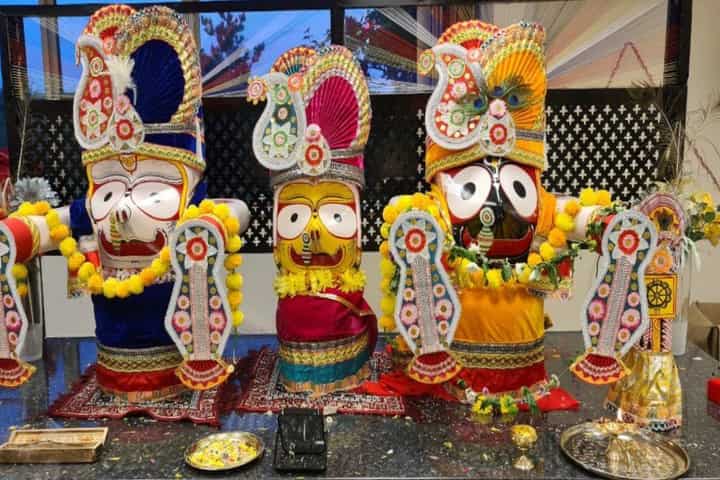It was the faith of the devotees of Lord Jagganath in the United Kingdom, that made them desirous of a temple of their deity, and it was their faith that made that dream come true!
The first temple in the UK dedicated to Lord Jagganath was opened recently at the former Culverhay School in Rush Hill in Bath by the Shree Jagannatha Temple UK group and the Bath Hindu Community. The temple opened on May 22.
Talking to the bbc.com, Ashish Rajhansha, a Bath Hindu Community member, who lives in the city, said: "For us it's like a dream of a lifetime that's come true having a temple in Bath. We had this dream for a long time, about 15 to 17 years but it couldn't have been possible without the help of Shree Jagannatha Temple UK.”
In Hinduism, Lord Jagganath is considered as an incarnation of Lord Vishnu, the preserver and protector of the universe.
Lord Jagganath is celebrated in the Jagganath Rath Yatra or Chariot Festival held in June or July every year in Odisha. Devotees in droves pull an idol of Lord Jagganath and his elder brother Balabhadra and sister Subhadra along on a colourful, decorated chariot through the streets. The Festival is held in Puri, which is 65 kilometres from the State Capital, Bhubaneswar.

The Jagganath Rath Yatra or Chariot Festival held in Puri (Pic: Courtesy wikimedia.commons)
The main Lord Jagganath temple in India is located in Puri and it dates back to the 11th Century.
The Shree Jagannatha Temple UK, founder member Pratap Prusty was quoted in the article as stating that “The Jagganath culture has a massive following in India. In the United Kingdom there are lots of Hindu temples and usually what happens in Hinduism is we have multiple gods and their different followers — that's how Hinduism is.”
Elaborating on how the temple came into being, Prusty said: “So a group of friends, devotees — we travelled to some of the UK temples and found there wasn't a temple dedicated to Jagganath. Jagganath was there as a 'side' deity so there weren't any proper Jagganath ceremonies or Jagganath puja (ceremony) so that's where the idea came in.”
He went on to add: "There are so many devotees around the country in the UK and Europe who love and follow Lord Jagganath so we wanted to try and form a temple in his name."
Bath has nearly 1,700 Hindus living in the area.
The group aims to buy land in Bath to construct a permanent temple and will raise funds to achieve that goal.
Since Odissi, one of India’s eight classical dance forms, is connected with Lord Jagganath, the new temple is sure to have an area dedicated to the art form. Talking about it to bbc.com, Susmita Pati of Basingstoke, Hampshire said: "Lord Jagganath is also the lord of arts and culture. There are eight classical forms of dance in India. Odissi is one of the oldest, and it is very closely connected with Lord Jagganath and the chauka position which actually means salutation to the Lord.”

Odissi, one of India’s eight classical dance forms, is connected with Lord Jagganath (Pic: Courtesy wikimedia commons)
Going on to elucidate on this aspect, she added: "Dance is an integral part of the Jagganath culture — it's not on the side, in a little room, it's in the main temple. So when the actual temple is constructed in a couple of years' time my role is to ensure the dance arena is there."
There is more to the temple than just the spiritual aspect as pointed out by Dr. Sharath Gangadhara, a consultant at the Royal United Hospital. "It's not just a temple, it's a place where you can discuss issues that are going on with your close friends and family and find solutions and find that inner peace."
Gangadhara added that the temple would also help to bring the community together offering a space where people could practise yoga, dance and the arts




















